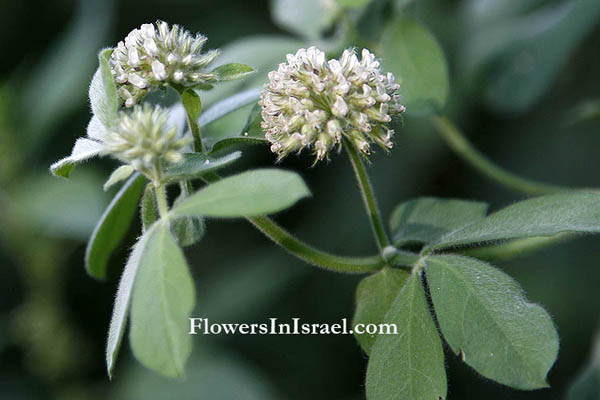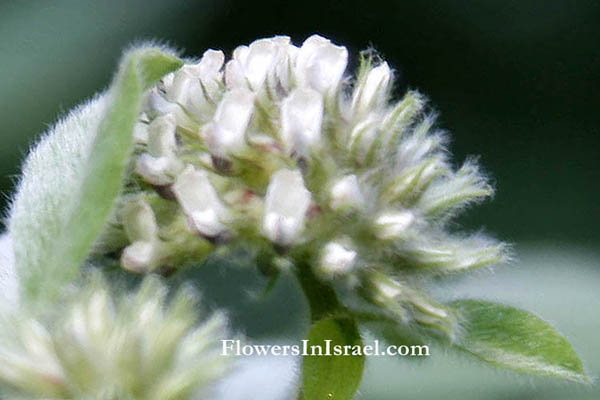Dorycnium rectum, Bonjeanea recta, Erect canary clover,
Hebrew: אחילוטוס זקוף, Arabic: دوركنيوم قائم
|
|
| Scientific name: |
| Dorycnium rectum(L.) Ser. |
| Synonym name: |
| Bonjeanea recta (L.) Reichenb. |
| Common name: |
| Erect canary clover |
| Hebrew name: |
| אחילוטוס זקוף |
| Arabic name: |
| دوركنيوم قائم |
| Plant Family: |
| Papilionaceae, פרפרניים |
|
|
| Life form: |
| Hemicryptophyte |
| Stems: |
| To 3–4 m in height |
| Leaves: |
| Alternate, compound, pinnate |
| Flowers: |
| White, pink |
| Fruits / pods: |
| Legumes |
| Flowering Period: |
| April, May, June, July, August, September |
| Habitat: |
| Humid habitats |
| Distribution: |
| Mediterranean Woodlands and Shrublands |
| Chorotype: |
| Mediterranean |
| Summer shedding: |
| Ephemeral |

Derivation of the botanical name:
Dorycnium was a common poisonous plant, which was so called from the fact that it was used in battle for poisoning the points of spears.
rectum, erect, upright.
Bonjeanea , named for Joseph Bonjean (1819 - 1842), a French botanist.
- The standard author abbreviation L. is used to indicate Carl Linnaeus (1707 – 1778), a Swedish botanist, physician, and zoologist, the father of modern taxonomy.
- The standard author abbreviation Ser. is used to indicate Nicolas Charles Seringe (1776 – 1858),a French physican and botanist
- The standard author abbreviation Reichenb. is used to indicate Ludwig Reichenbach (1793 - 1879), a German botanist and ornithologist.
Dioscorides, Pedanius Dioscorides (Greek: Πεδάνιος Διοσκορίδης; ca. 40-ca. 90), the Greek Herbal of Dioscorides: Dorycnium is a shrub similar to a newly-planted olive, with branches less than a foot long. It grows among rocks not far from the sea. It has leaves similar to the olive in colour but smaller, stronger and extremely coarse. The flower is white, on the top it has little pods as thick as those of cicer in which are five or six little round seeds, about the amount of little ervum, smooth, firm, and of various colours. The root is the thickness of a finger and the length of a foot, and this seems also to have a sleepy quality, and taken too much it kills. Some also say that the seed of it is taken for love medicines. Crateuas calls it halicacabum [a bad poison], or caleam.
|

